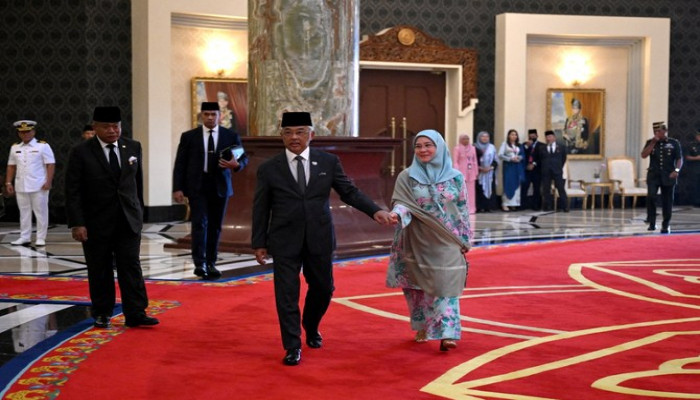Sultan Ibrahim officially designated as the upcoming King of Malaysia
- In Reports
- 05:28 PM, Oct 27, 2023
- Myind Staff
The royal families of Malaysia have elected Sultan Ibrahim Sultan Iskandar, known for his influence and candid demeanour, as the forthcoming monarch. Hailing from the southern state of Johor, Sultan Ibrahim is set to assume the largely ceremonial role of Malaysia's king.
In recent years, the monarchy's role in Malaysia has seen an increase in significance, primarily attributed to prolonged political instability. This has compelled the incumbent king to exercise rarely employed discretionary powers.
Malaysia operates under a distinct system where the nine royal families take turns to hold the position of monarch, each serving a five-year term. In this Southeast Asian nation, the monarchy's role is integral, serving as the head of state within the framework of a parliamentary democracy. These developments reflect the evolving landscape of Malaysia's political and constitutional structure.
Sultan Ibrahim's official ascension to the throne is scheduled for January 31, 2024, as confirmed by the keeper of the rulers' seal in a statement issued. Unlike many of his fellow traditional Malaysian rulers, Sultan Ibrahim has been notably vocal about political matters and has openly expressed a positive rapport with Prime Minister Anwar Ibrahim.
Recognized for his extensive collection of luxury cars and motorcycles, the sultan boasts diverse business interests, spanning from real estate ventures to involvement in mining. His forthcoming reign is anticipated to bring a distinctive perspective and influence to Malaysia's monarchy, reflecting the evolving dynamics within the country's political and economic landscape.
King Al-Sultan Abdullah, the outgoing monarch, notably played an unusually active role in the realm of Malaysian politics, directly contributing to the selection of the country's past three prime ministers.
Under Malaysia's federal constitution, the monarch's authority is circumscribed, with only a limited set of discretionary powers. Typically, the king is mandated to act in accordance with the counsel provided by the prime minister and the cabinet.
However, a constitutional provision also affords the king the prerogative to appoint a prime minister believed to command a parliamentary majority. This authority remained dormant until the year 2020, as the customary practice for designating the prime minister involves an electoral process rather than a royal appointment. These developments underscore the evolving dynamics of Malaysia's constitutional and political landscape.
During a period marked by political instability, King Al-Sultan Abdullah exercised these powers, a period initiated by the electoral defeat of the United Malays National Organisation (UMNO). UMNO governed Malaysia continuously from its independence until 2018.
In addition to the aforementioned powers, the king also holds the authority to grant pardons to individuals who have been convicted. In 2018, King Al-Sultan's predecessor, Sultan Muhammad V, granted a pardon to Anwar Ibrahim, who had been imprisoned on charges of sodomy and corruption, allegations he contended were politically motivated.
Former Prime Minister Najib Razak, who was incarcerated last year following a corruption conviction linked to the 1MDB state fund scandal, has submitted a request for a royal pardon. The consideration of this request now falls under the purview of the new king, signifying the evolving landscape of Malaysia's legal and political processes.
Image source: Reuters







Comments